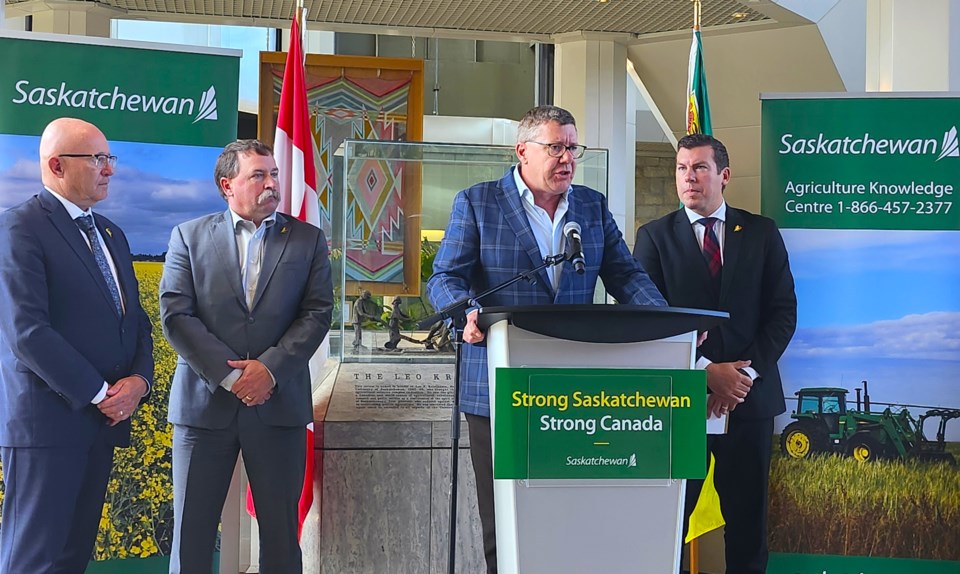SASKATOON — Premier Scott Moe will be making a trip to China, along with several members of the federal government, to continue discussions on the tariffs imposed by the Chinese government on Saskatchewan-produced canola and to engage counterparts in finding a solution to the latest trade issue between both countries.
China has an existing 100 per cent tariff on Canadian agricultural products and last week imposed an additional 75.8 per cent duty on canola oil and canola meal as preliminary anti-dumping measures. The decision has had a significant impact on Saskatchewan’s industry and farmers, as they prepare for harvest.
Moe said Prime Minister Mark Carney is set to meet with Western premiers to continue work on convening stakeholders about what can be done to support the $43-billion canola industry in the country. Canola is primarily grown in Western Canada, with Saskatchewan among the top producers.
He said the provincial government is ready to work alongside its federal counterparts, under Carney’s leadership, as they map out a plan to save trade relations between Canada and China before the end of the year and to advocate for a resolution.
“Whether it be the retaliatory tariffs on seed and meal, or whether it be the allegations of dumping on oil and meal. That is going to happen when the federal government and our Prime Minister meet with [Chinese] President Xi [Jinping],” said Moe, joined by Parliamentary Secretary to the PM Kody Blois during a press conference on Thursday at the University of Saskatchewan’s Agriculture Building.
He added that they are not only working to resolve the challenges facing Canada's canola industry in the Chinese market, but are also looking at opportunities to expand trade and production with other Canadian industries in China, something that Carney and Xi could discuss in a possible meeting between the two countries.
Provincial Minister of Agriculture Daryl Harrison and Minister of Trade and Export Development Warren Kaeding were also present in the meeting with canola industry stakeholders. They are expected to join Moe and their federal counterparts in the trade mission to China, supported by the province’s trade office in Shanghai.
Moe said there should be a point in time when anti-dumping tariffs on Canadian canola imports would expire. He vowed to work with canola industry leaders and the federal government to support Saskatchewan’s canola exports and the broader agricultural food sector.
China’s tariffs on canola imports came in response to Ottawa imposing 100 per cent duties on Chinese-made electric vehicles. China is the world’s largest canola importer, with Canada being its largest trading partner for canola-related products. Saskatchewan contributes 60 per cent of Canada’s canola production.
Moe added that provincial and federal officials must control what can be controlled, particularly the domestic market, to ensure provinces are working closely in a regulatory environment that provides opportunities across the country.
He said the country must have an environment that supports investment and enables the sustainable production of goods, like canola, which is being produced in Saskatchewan and exported to over 160 countries.



